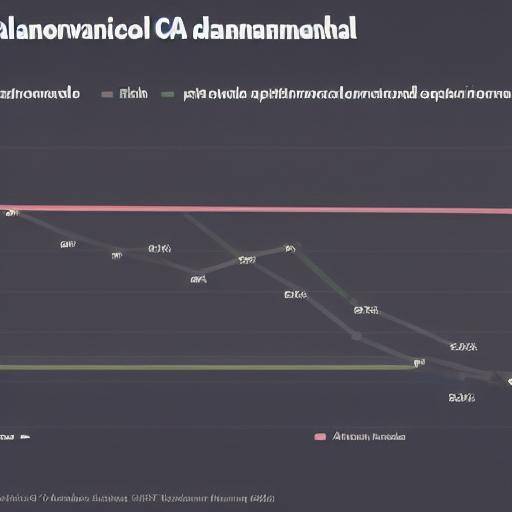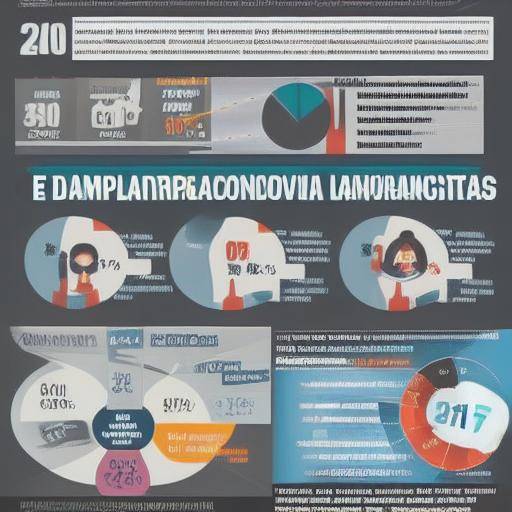
Why is flexibility vital in personal strategic planning? This issue is essential in a constantly changing world, where the ability to adapt has become a fundamental asset both at the personal and professional levels. Flexibility in strategic planning allows individuals and organizations to adjust their goals and actions according to new circumstances, thus optimizing their chances of success.
In this article, we will explore in depth the importance of flexibility in personal strategic planning, analyzing its historical relevance, benefits and challenges, comparing it with adaptation, and providing practical advice and expert perspectives. In the end, we hope to help readers understand how flexibility can improve their strategic planning capacity and enhance their personal goals.
History and Background
The relationship between flexibility and strategic planning dates back to ancient times. From military strategies to economic planning, the ability to adapt to change has been a crucial factor for success. In the personal sphere, the need for flexibility in strategic planning has become even more evident in the modern era, in which the speed of technological, social and economic changes demands constant adjustments in our objectives and actions.
A crucial milestone in modern understanding of flexibility in strategic planning was the pioneering work of theorists such as Henry Mintzberg and Michael Porter, who stressed the importance of adapting to the changes of the environment, both internal and external, in realizing effective strategies.
Analysis in Deep
Flexibility in personal strategic planning entails a number of significant benefits. On the one hand, it allows individuals to react agilely to the opportunities that arise, as well as to potential threats that may affect their goals. In addition, the adoption of a flexible stance fosters innovation and creativity, allowing the development of more dynamic and effective strategies.
However, not all are advantages. Flexibility also presents challenges, such as the need to balance adaptability with stability, and risk management associated with rapid change.
Comprehensive review
In practice, flexibility in personal strategic planning results in the ability to adjust goals and tactics, as well as in the willingness to learn and grow from experiences, thus creating a constant cycle of continuous improvement.
Field experts point out the importance of combining flexibility with a long-term strategic vision, allowing short-term adaptation without losing sight of the long-term goals. This strategic and flexible mentality is essential to confront the challenges of the modern world and take advantage of the opportunities that arise along the way.
Comparative analysis
It is important to distinguish between flexibility in strategic planning and adaptation capacity. While flexibility refers to the ability to adjust plans and objectives, adaptation involves deeper changes in the structure and functioning of a person or organization. Although related, these two capacities offer different approaches to confront the uncertainty and complexity of the environment.
Practical Tips and Accessible Tips
If you are looking to improve your flexibility in personal strategic planning, consider these practical tips:
- Review your goals periodically and make adjustments according to circumstances.
- Keep an open attitude to change and experimentation.
- Learn from your experiences and adjust your focus according to what works best.
Remember, flexibility does not mean abandoning your goals, but adjusting your methods to achieve them in the best possible way.
Industry Perspectives and Expert Reviews
According to experts in the field of strategic planning, flexibility has become an essential attribute for success in a changing world. Some opinion leaders point out that flexibility can be a differentiating factor in personal and organizational competitiveness, as it can adapt agilely to market demands and respond effectively to unexpected changes.
Case Studies and Practical Applications
To better understand the application of flexibility in personal strategic planning, let us see a concrete example. Imagine an entrepreneur who initially plans to launch a new product to the market, but because of unexpected economic changes, he decides to flex his strategy and guide his product towards a new audience. This shift in focus, based on a constant assessment of circumstances, demonstrates the value of flexibility in strategic planning by allowing adaptation to changing conditions.
Future Trends and Predictions
Current trends point out that the need for flexibility in personal strategic planning will continue to increase, as the speed of change and uncertainty in the environment intensify. Individuals and organizations that can effectively integrate flexibility into their strategic processes will be better prepared to face the challenges and capitalize on future opportunities.
Conclusion
In short, flexibility plays a key role in personal strategic planning, enabling people to adapt to changing the environment effectively and take advantage of emerging opportunities. The ability to adjust plans and goals agilely, balanced and focused on those long-term goals is critical to achieving success in a dynamic and competitive world.
Frequently asked questions
1. What is the difference between flexibility and adaptation in personal strategic planning?
Flexibility involves adjusting plans and goals agilely, while adaptation involves deeper changes in the structure and functioning of a person or organization.
2. How can I improve my flexibility in personal strategic planning?
You can improve your flexibility by periodically reviewing your goals, keeping an open attitude to change and learning from your experiences to adjust your focus according to what works best.
3. What is the impact of flexibility on personal and organizational competitiveness?
Flexibility can be a differentiating factor in competitiveness, as it allows to adapt quickly to market demands and respond effectively to unexpected changes.
4. What is the role of flexibility in long-term strategic planning?
Flexibility in long-term strategic planning involves adjusting tactics and methods according to circumstances, without losing sight of long-term objectives.
5. What are the benefits of adopting a flexible mentality in personal strategic planning?
A flexible mentality promotes innovation, agile adaptation to opportunities and threats, and fosters continuous learning and experience-based improvement.
6. How can I balance flexibility with stability in personal strategic planning?
To balance flexibility with stability, it is important to maintain a long-term strategic vision and adapt to the short term without losing sight of the long-term goals.
This article has addressed the importance of flexibility in personal strategic planning, offering a complete picture that we hope has been of great use. The ability to adapt to changes and strategically adjust our goals and actions allows us to navigate more effectively in a dynamic and challenging environment.






















































